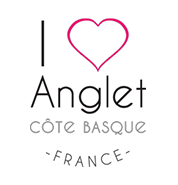Basque pelota is a true institution in the Basque Country. A version of the traditional jeu de paume, it is played bare-handed, with a chistera or a pala. It is played in frontons, courts that are either open or closed, such as trinquets. You’re highly unlikely to find a Basque village without a fronton!
Cesta Punta is a very physical sport played with a chistera. The pelota flies at the players at more than 200 km/h. The chisteras are all made in Anglet. Anglet is home to Mr Gonzales, the last craftsman in the Basque Country. A chistera is a glove made of wicker. Its chestnut-wood shell is custom-made to fit the player’s body and playing style. The wicker is woven when wet. It takes 20 to 25 hours to make a single chistera.
You can catch the action at the Jaï Alaï in Biarritz or Saint-Jean-de-Luz. There are worldwide Cesta Punta tournaments like Le Gant d’Or (the Golden Glove), held in Biarritz. Basque pelota is played one-on-one or in teams. It is a friendly sport that can be played amongst friends and family, as well as on the fronton—that’s why it’s so popular.
